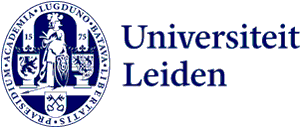Didactics
Teachers’ Professionalisation Course: Dialogue in Education
How dialogue as an activating teaching method can support your teaching and your students
- Target group
- Lecturer
- Method
-
Training course
Do you find that students discuss topics in class and share their opinions, but don’t genuinely listen to one another? Or that the same vocal students always say something in class while the quieter students remain silent? Do you notice that your students are hesitant to ask questions? Are you hesitant to discuss sensitive topics and would you like to create a positive class atmosphere? Or would you like students to better personally connect with the course materials and/or with each other?
Then the structured dialogue method might be of interest to you! This method is a powerful activating teaching method in which all students participate. Through listening, sharing ideas, temporarily withholding judgment, and asking questions in a safe setting, they learn to see things from a different perspective and develop a personal connection with the subject matter. On top of that, they develop important academic skills, such as collaboration, oral communication, reflecting on their own learning, and resilience. By feeling truly heard, a sense of community arises which is supportive for their well-being.
Key learning outcomes
In this hands-on course, you will learn three main things. First, you will become familiar with the principles of structured dialogue developed by philosopher and physicist David Bohm. Second, you will practise the dialogue extensively and learn how to facilitate small-group in-class conversations. Third, you will learn how to integrate the method in your own course(s) and how you can work on creating an inclusive learning environment.
Practical information
The course consists of three sessions that are scheduled on:
- Wednesday 17 June
- Tuesday 29 September
- Thursday 19 November
Participants are expected to attend all three sessions.
Trainers are Dr. Karin Nijenhuis, African Studies Centre Leiden (all five sessions) and Najat El Hani, Leiden Learning and Innovation Centre (second session) .
The language of instruction will be English. Spaces are available for 8-12 participants, with priority given to Faculty of Humanities teaching staff.
Participants will have access to a dedicated online platform throughout the course. Upon completion, a certificate of participation can be provided upon request.
Course outline
The outline of the sessions is as follows:
1. What is a structured dialogue and what is my motivation to use dialogue in my teaching?! (17 June)
In the first session, you will become acquainted with Bohm’s dialogue concepts and the dialogue structure. We will reflect on our motivations and visions regarding dialogue in teaching. You’ll actively engage in a complete dialogue, allowing you to experience its dynamics first-hand.
2. How to apply dialogue in your teaching? (29 September)
In the second session, we will consider various inspirational applications of dialogue in teaching, but also possible barriers. We will also look at group dynamics: how to encourage an inclusive learning environment and how to deal with challenging situations? Another topic is related to transferable skills: dialogue fosters various transferable skills, but how can dialogue be designed in such a way that specific dialogue skills (such as attentive listening or creating an open mind) are trained? Lastly, we will consider what makes a good (or bad) central question for dialogue. Of course, practising dialogue is an integral part of the session.
3. Facilitating mini dialogues (19 November)
And now you will do it yourself! For the third session, you prepare a mini dialogue together with a few co-participants, which you will facilitate in-class. This means there will be three rounds of dialogue facilitation in this session. The dialogue facilitation and practising, and the (peer) feedback will enhance your dialogue exercise and facilitation skills.
4. Return session (date to be determined in the second semester)
With the skills and knowledge you have acquired, you are able to effectively integrate dialogue into your teaching practise. A return session will be organized, i.e., an intervision session in a dialogue form, in which you can share your experiences and give feedback to one another.
5. Lesson observation and individual coaching (date to be determined in the second semester)
Before or after the return session, you have the opportunity to have your class observed by Karin Nijenhuis. She offers an additional individual coaching session to discuss your experiences with dialogue in education.
Course background
The course has been developed as part of Karin Nijenhuis’ Comenius Senior Fellowship (2023-25) aiming at integrating structured dialogue in higher education for better student wellbeing. She trained eight lecturers from the Faculty of Humanities and the African Studies Centre Leiden (as well as nearly forty Honours’ students), bringing them together in the Leiden University Dialogue in Education Network (LUDIEN): Madi Ditmars, Jenneke van der Wal, Karen Smith, Noa Schonmann, Thijs Witty, Victor Gijsbers, Bart Zantvoort and Esther Op de Beek.
Since then, the trained lecturers have begun incorporating dialogue into their courses. Their experiences have informed the development of this teachers professionalisation course in collaboration with the Leiden Learning and Innovation Centre. The project was supported by three student assistants.
For further information, contact Karin Nijenhuis via c.t.nijenhuis@asc.leidenuniv.nl
Curious to see it in practice? Watch the video below.
Due to the selected cookie settings, we cannot show this video here.
Watch the video on the original website or